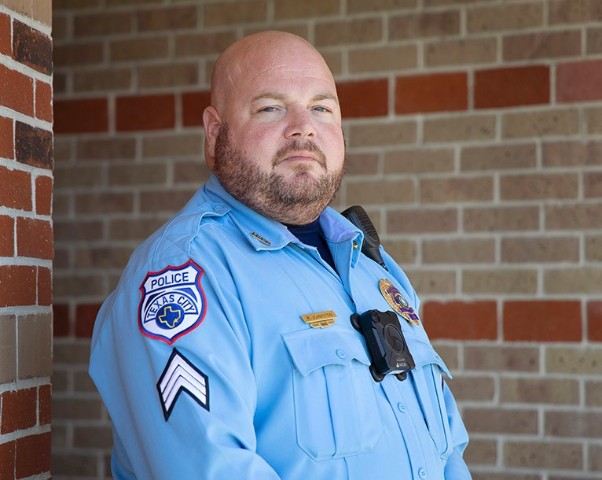FirstNet – the network “too good to be true” – is helping simplify communications
Posted on February 12, 2019

When I first heard about FirstNet right after 9/11, it sounded too good to be true. Our own network platform where we were not competing with others for bandwidth; our own reliable data coming to us; and our own voice messaging.
I never thought it would happen. I figured it was one of those things from Buck Rogers and maybe one day it would come to life.
Well, that day is finally here.
Communication is critical. Simple communication. Being able to talk to units in the field and understand what they're going through; what they're relaying back to the chain of command. Being able to communicate with other agencies. It’s vital for decisions to be made.
And FirstNet is helping us do that. That's with every call. From a single lost child to a dreaded catastrophe, like a school shooting. FirstNet is helping us keep students safe. And that is critical to me, as I have two kids in the district.
Sorting out false reports
Ramping up assets and resources and getting everybody there on scene is scary – especially for a false alarm. It scares the kids, it scares the teachers.
So, how do you address that?
With the reliable connection from FirstNet, we're able to use apps that allow multiple users to see videos from a user who's in the school at the time of the threat or report. We’re able to see what's going on inside. Once that video goes active, you quickly have accurate information as to whether it's going to be a false alarm or if it's the real deal.
It gives us peace of mind knowing we can quickly discount false alarms – and we’re not going to send the troops storming in because we know it's not the real deal. On the flip side, if something were to happen, you’re getting a live feed and you know to ramp it up and what to bring and you go in for real.
Putting FirstNet to the test
When something happens, everybody wants to know what's going on. That ties up our computers, that ties up the bandwidth, it ties up our mobile display terminals, it ties up our radios. The technology we use must be reliable so that information can flow up and it can flow down. It's vital.
We conducted active shooter drills here within the district (Texas City ISD) using FirstNet. It was a joint effort between the school district, the police departments and the other agencies in the immediate area.
FirstNet did exactly what it said it would do. We saw everything we needed to see. FirstNet fed back information to both the command post and to the other officers who were further back.
Operability between agencies – such as the county, the state, even our local municipalities that are joining us – is critical when responding to a call.
That’s why everybody who has a stake in this should be on FirstNet – from the guy on the ground to the commander at the top who's making decisions about how to respond to an incident.
Sgt. Randall Johnston is a police officer with the City of Texas City Police Department. He has 24 years of experience in law enforcement and is currently serving as the dayshift Patrol Sergeant in Texas City. He holds licenses as Master Peace Officer, Field Training Officer and Special Investigator through the Texas Commission on Law Enforcement. Sgt. Johnston has received numerous awards and commendations, including the Medal of Valor, during his tenure with the Texas City Police Department. He was one of the many officers who responded to the Santa Fe High School shooting in May 2018.
